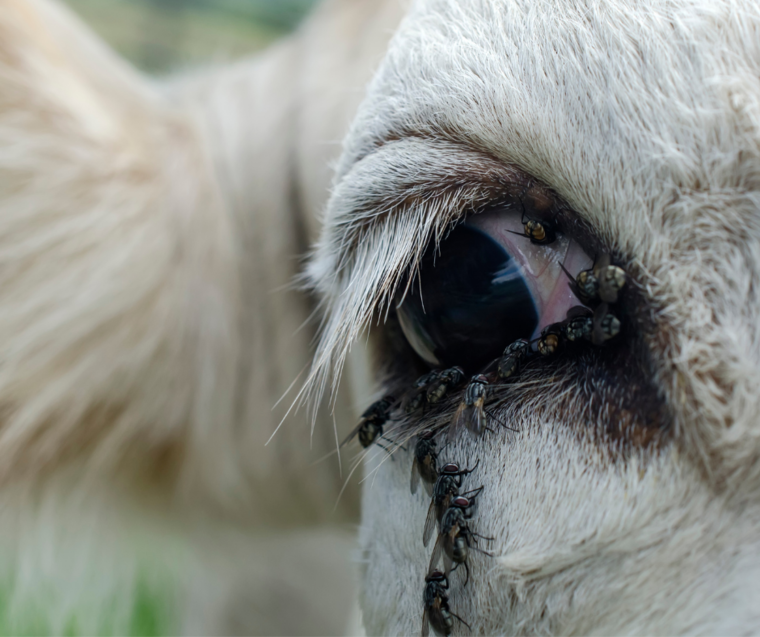Mark Brady, product manager at Carr’s Billington, says that the fly breeding season was delayed by around a month this year due to the cold weather in early spring. But now summer is here, and temperatures are likely to stay high, it’s crucial farmers act to reduce the financial impact flies could have over the grazing season.
“There is research to suggest fly irritation could reduce milk yields by up to 0.5 litres/cow/day, growth rates of beef cattle by 0.3kg/head/day, and could cause up to 5.5kg weight loss in sheep over a four to six day period, so I’d recommend using a combination of methods to help prevent these potentially significant losses.
“Keep livestock away from wetlands, waterlogged areas and trees if possible, as this is where flies tend to congregate. Applying insecticides to grazing livestock as a preventative measure is also advisable and it’s important to use them regularly and appropriately. Insecticide-impregnated ear tags for example, could form part of your fly management plan,” he says.
Mr Brady adds that supplementary licks containing garlic could also be made accessible to dry cows, youngstock and animals not heading for slaughter as they are said to help with the effect of flies in high challenge areas. For the best advice on fly control, he suggests farmers speak to their local vet or Animal Medicines Adviser (RAMA).
“All of Carr’s Billington’s RAMAs are educated in fly prevention and treatments as they receive regular training. This also ensures they’re aware of the most up to date information based on the fly forecast for that particular year.
“Vets and RAMAs also speak to many other farmers in the local area on a daily basis so they are kept up to date on when different fly species have emerged, or incidents of fly transmitted disease.”
Mr Brady also says that the online national Blowfly Alert tracker, provided by the National Animal Disease Information Service (NADIS) and Elanco, is a handy tool farmers can use to keep well-informed of where blowflies are present across the country and how much of a risk they pose.
“Generally, when good fly management practices are implemented and maintained all year round, it’s easier to reduce nuisance and welfare issues come the peak season. However, there are still plenty of options that can be implemented now that will help keep on top of the issue and reduce the financial losses flies could cause this summer,” he concludes.




